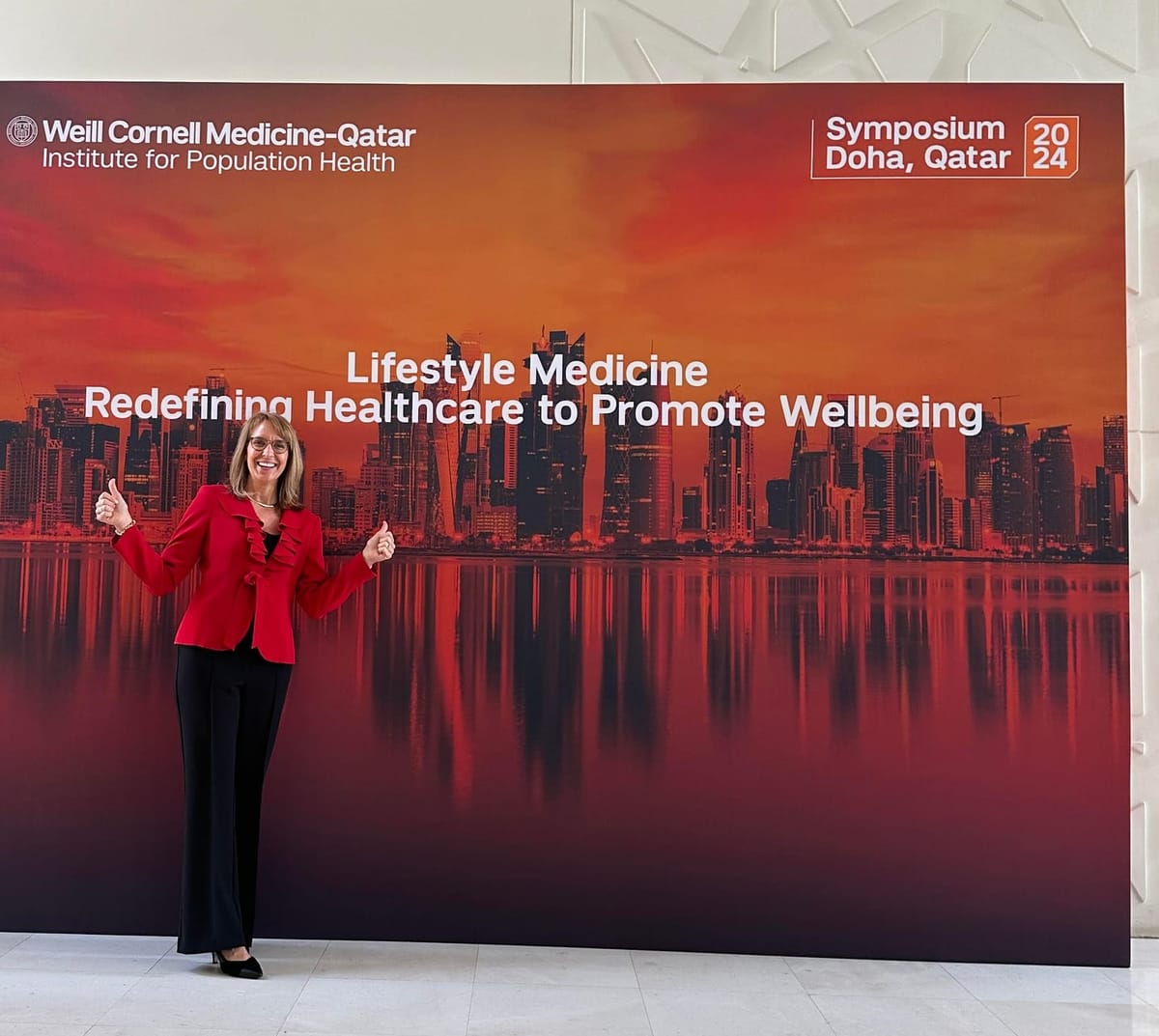DR. AMY MECHLEY has an extensive and impressive list of credentials and affiliations. The ones that matter most to me, though, are the titles she holds of Direct Primary Care Physician and Family Physician. She is also as generous and kind as she is brilliant. Her mentorship of students throughout Ohio, including me, speaks to just one of the many ways Dr. Mechley truly walks the walk she preaches. Her authenticity and vulnerability are such incredible aspects of her strong leadership - and an example that I hope to emulate in my own life. I hope you enjoy learning more about Dr. Mechley's perspective on Lifestyle Medicine, which she excels in living, practicing, and sharing with her patients in Cincinnati, Ohio.
You can find out more about Dr. Mechley's incredible career on her LinkedIn and on her practice website, Integrated Family Care.
how do you define and differentiate lifestyle/integrative/functional medicine?
These types of practices share many similarities. About 88% of the foundation of these approaches overlap, focusing on restorative health and disease prevention. For instance, from a nutrition standpoint, all emphasize the importance of a plant-slant, nutrition-focused dietary pattern. They also stress the significance of restorative sleep, movement, and exercise. The majority of the evidence supporting these practices is similar.
However, there are differences. Here is my perspective:
Functional Medicine is very gut-focused. Some interventions and tests are not yet solidly evidence-based or scientifically validated, but that does not mean they are not worthwhile or helpful. Some aspects of functional medicine cannot be easily accessed by the general population due to the cost and accessibility of testing. Both functional and integrative medicine can be financially prohibitive, impeding regular access.
Integrative Medicine is more like specialty care that one seeks out above and beyond regular care.
Lifestyle Medicine, on the other hand, can be easily integrated into regular practice—not just in primary care but also in specialties like rheumatology, cardiology, gynecology, and others. All these specialties can adopt a lifestyle-first approach. For example, hypertension guidelines recommend lifestyle interventions as the first line of treatment.
One unique aspect of lifestyle medicine is its applicability across all geographies, socioeconomic statuses, and healthcare delivery systems. It is effective in direct primary care and FQHC settings. Functional and integrative medicine, on the other hand, often require more specialized testing or the ability to prescribe supplements, limiting their widespread use.
I believe people have been helped by both functional and integrative medicine. Increasingly, there is a convergence of thought among practitioners. For example, George Washington University ‘s Integrative Program has been recognized as one of the eligible program prerequisites required for the ABLM Board Exams. More practitioners are coming together and recognizing what the public needs to hear, access, and utilize to improve preventive and public health.
A relevant development in defining these practices is the work being done by the World Health Organization (WHO). They are working to describe different types of medicine, including traditional medicine (what is dominant in a specific culture/country and historically majority utilized), complementary medicines (used alongside another type; for example, "I’ll do both"), and alternative medicines (used in place of another; for example, "I won’t do one, I’ll do the other").
Something special about lifestyle medicine is that it crosses all geography, all socioeconomic statuses, and all healthcare delivery systems.
I do think people have been helped by functional and by integrative medicine, and increasingly, I see that a convergence of thought among us.
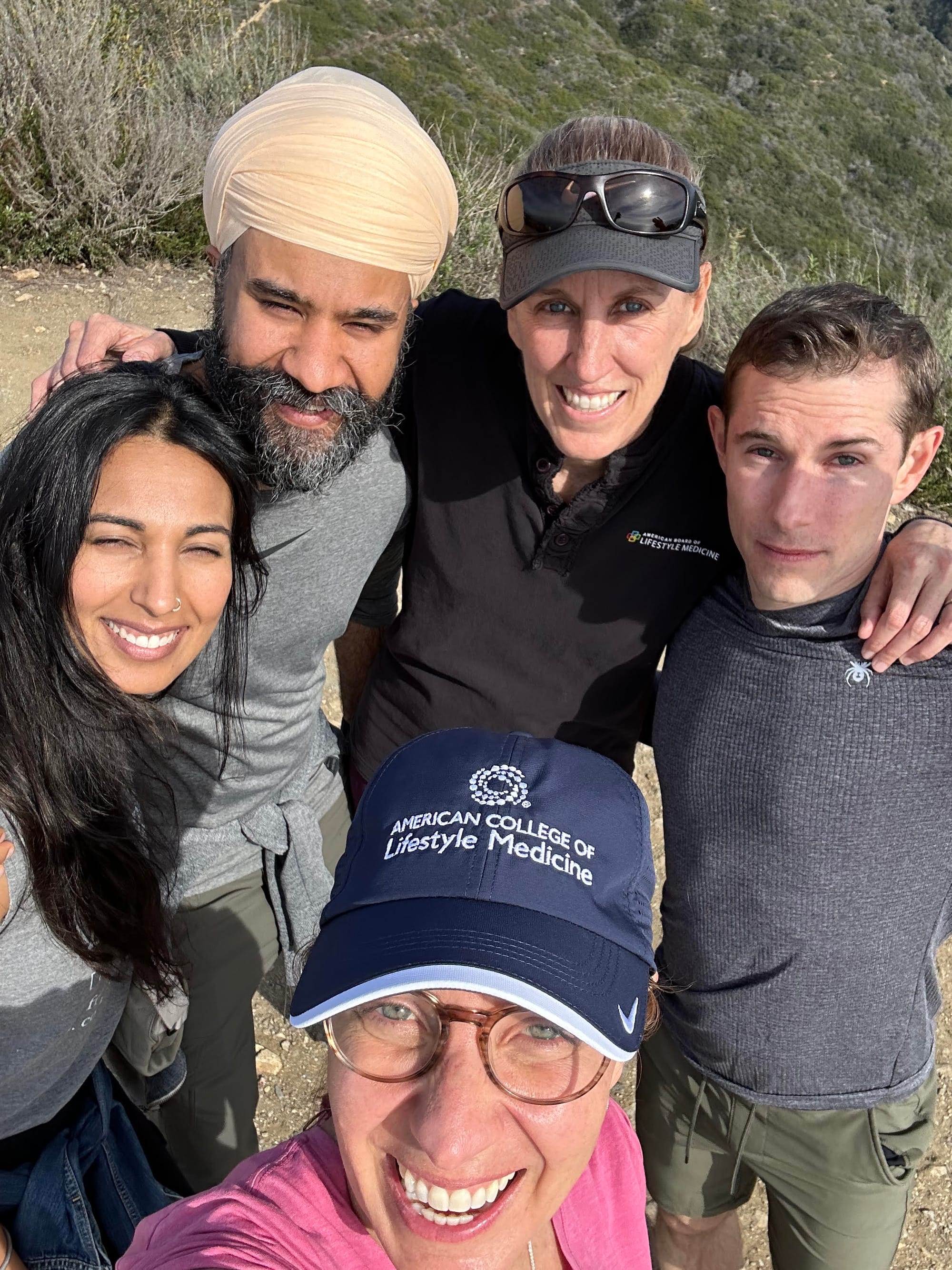
How did you discover Lifestyle Medicine, and why did you choose this?
When I started on this journey, one pivotal event shifted my practice and perspective: my brother-in-law suffered a heart attack at age 45. He died. He seemed healthy - he was a runner! - and his sudden death took our family completely by surprise. It didn't make any sense to me. Leading up to that event, I had been reflecting on my practice and patients, realizing there was so much more to medicine than writing prescriptions and managing diseases.
I then attended a course in Mind-Body Medicine at Harvard/Massachusetts General Hospital. This course truly opened the door for me. I thought, "I knew it. There is more to medicine." This course laid the foundation for my understanding of "wellness." Afterward, I continued searching for more approaches to practice, teach, and share this journey. I believed there had to be a more organized way to integrate holistic, restorative care into my practice.
At that time, I was an attending physician at the University of Cincinnati. My training had taught me to value evidence-based medicine. I realized I wanted a structured approach to holistic care. I explored integrative and functional medicine, but they weren't well-defined back then. We didn't yet have prominent figures like Mark Hyman or Caldwell Esselstyn. However, I sensed there was something important in that line of thinking.
My first Lifestyle Medicine meeting was a revelation. There were about 500 attendees, and I thought to myself, "These are my people! There are others who want what I do." I realized my current practice was not truly healing. The medical field was inundated with more pharmacology, more testing, and more high-cost, low-yield interventions. This was not what I wanted for my patients or their families. Lifestyle Medicine offered an opportunity to transform my practice, to infuse a more preventative and healing lens on top of my current training.
It is empowering to know, deep in our gut and soul, that we are healers and have the tools to help patients. About 16 years ago, the American College of Lifestyle Medicine (ACLM) brought everything together for me. I thought, "This is legitimate; this makes sense." Lifestyle Medicine provided the organized, evidence-based approach I had been searching for, allowing me to offer holistic, restorative care to my patients.
It’s so empowering to know in our gut and soul that we are healers and have the tools to help patients.
Dr. Mechley on evidence-based medicine and the practice of medicine:
Today, I tell my students, "Logic is not science." It's crucial to understand and exercise discernment. Take physician annual well breast exams, for example: they were once found not to help identify cancer effectively, so we were discouraged from including them in physical exams. However, teaching women how to perform breast self-exams has been shown to improve detection rates and outcomes. While not everything must be evidence-based, it's important to test and validate our practices.
When I found Lifestyle Medicine, I was looking for an organized approach to what I know to be holistic, restorative care.
Lifestyle medicine focuses on the body’s power of homeostasis, so it emphasizes avoiding substances like sugar, alcohol, cocaine, and other drugs and toxins - so our body can heal and restore its natural baseline of function. We can’t harm our body and expect to feel vibrant. Accordingly, we should provide the body with a solid foundation, including real, nutritious food, adequate restorative sleep, and regular movement. This approach allows the body to heal and function optimally.
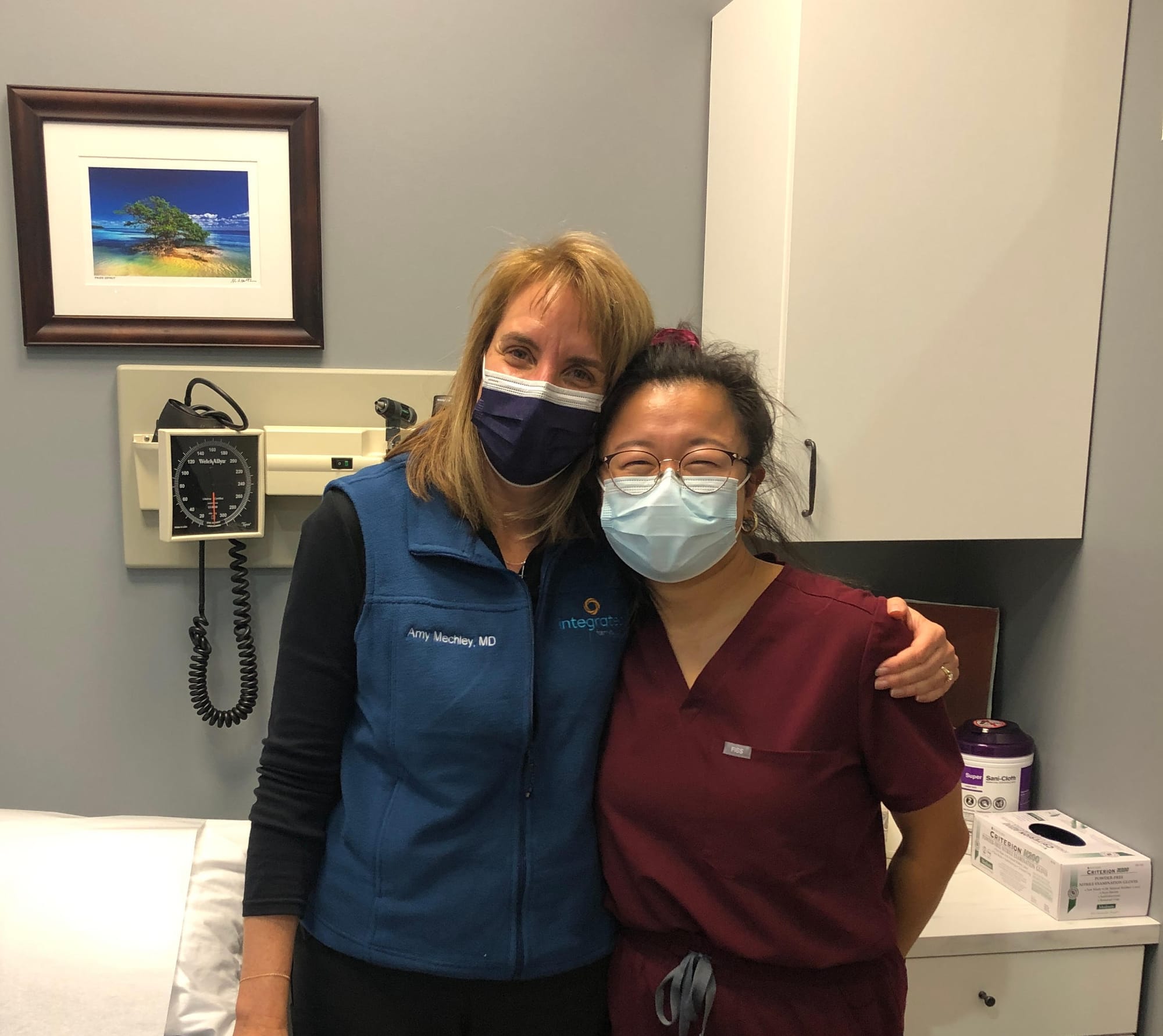
What advice do you have for aspiring whole-person, whole-life healers who wish to take a preventative approach in their care?
Keep seeking mentors or others who are doing something you believe in. Ask yourself: what motivates you? If your motivation is to truly serve your patients in healing, then seek out sound advice on preventive health and holistic approaches. Lean in and read extensively. Go to the conferences - my favorite is the annual ACLM conference. You will be embraced and ignited! Embrace a "yes-and" approach, rather than a mutually exclusive mindset that forces you to choose one over the other.
It's essential to avoid the noise: steer clear of those peddling secrets or charging exorbitant fees. Good medicine isn't a secret. Truly holistic, preventive health isn't expensive.
When it comes to holistic health, my preference is definitely lifestyle medicine. It's practiced in 72 countries worldwide. There's no other board-certified discipline that is both validated and widely utilized in so many places. Lifestyle medicine is a foundational aspect of medical care. It is applicable to everyone, from a five-year-old to an eighty-year-old, because it is so essential to health and healing.
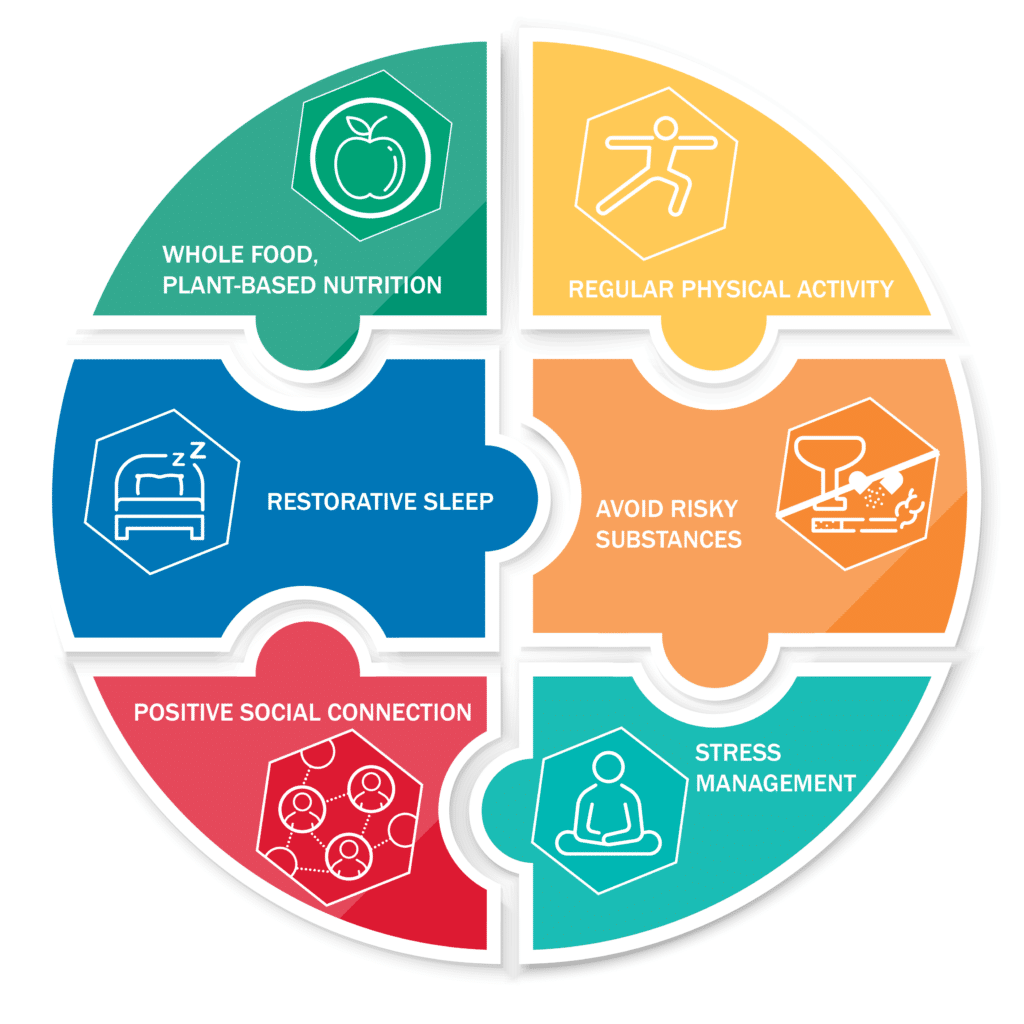
Dr. Mechley on the seamless alignment of Family Medicine & Lifestyle Medicine
I am trained in family medicine: trained for the wholistic approach to care that considers the whole person, the whole perspective and experiences of each person that together creates where they are at right now. I love family medicine because when I know the family, I better understand the patient, their life, and their decisions. I tell patients, “We will walk shoulder-to-shoulder. Hopefully I have some answers, but most of the answers are going to come to you."
Comment from Olivia: Our behaviors and habits are first cobwebs, then cables. Our families are our first classrooms (shoutout my dear friend Hedyeh for that lesson) - and we learn how to eat, how to move, and how to live from the grown ups in our lives who raise us. One of the things I look forward to most as a generalist healer is reminding my adult patients that you are the grown up in your own life now. You get to decide how to live. You get to choose to learn new ways of living and being, based on how you feel! How magical is that? The pillars of lifestyle medicine offer a structure to begin to explore this journey.
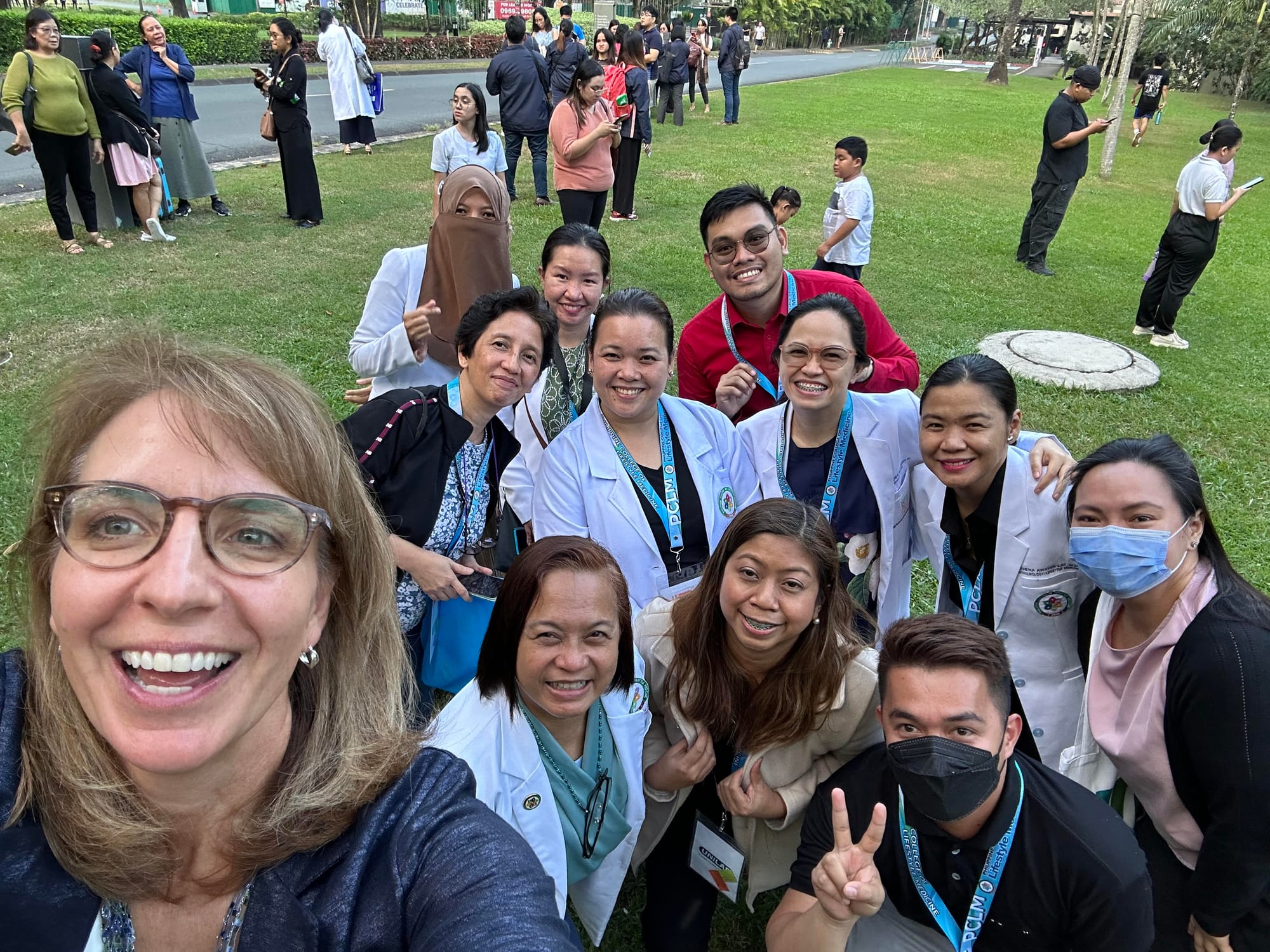
Dr. Mechley's advice for medical students
Engage with your peers! Peer-to-peer interactions are incredibly powerful. Keep a discerning and critical eye out for new information or the latest trends in preventive and wellness medicine. Unfortunately, especially on social media, there is a great deal of misinformation, where the signal-to-noise ratio can be overwhelming. Podcasts can be a helpful resource. Just keep asking where the source of the information is coming from, and how it is validated.
One thing I want to say to passionate medical students is a lesson I learned that perhaps you can avoid: When I first integrated these concepts into my practice, I became an unfortunate evangelist. I would tell people, "Try this, do this." I gave a lot of unsolicited advice. YUCK! It was well-intentioned, but for about a year, I felt like nobody knew this information and I HAD to tell everyone.
Now, I approach it differently. When I meet people who might not share my views or who are on a different path, I say, "Interesting - help me understand what you're saying." This approach fosters more meaningful conversations and mutual understanding.
I became the unfortunate evangelist. I told people: Try this, do this. I did a lot of advice-giving. Yuck!
What is challenging right now in your practice, in your lived journey?
About 20% of my time in the office is trying to help people resolve misinformation. Sometimes I will have a new patient come in who has sought information from books, social media, or elsewhere. They tell me something like: “I was told I need $1200 worth of tests.” I ask the patient: “What is the question you’re trying to answer?” Then we go from there. [See earlier commentary, on how good medicine is not a secret, and it's not expensive.]
Ultimately, I dream of helping to create an environment where the easy choice is the healthy choice. We, as a community, are all not only well informed but can make personal decisions daily that are simply available (like more movement in the day, more nature, more options for whole food that is convenient and affordable, we can seek medical care that supports our health more so than supports a disease care system that profits from poor health). I wonder how we could create an environment in our communities, hospitals, and world where the easier choice is the healthier one, and the most apparent and accessible to all. We would likely need less “Healthcare”.
A note from OD:
I love Dr. Mechley's commentary on misinformation and the cost of good care. I think my only hold-up with lifestyle medicine is that I feel there is even more to health and healing than just good nutrition and exercise (which to me are like brushing your teeth). And, I fully acknowledge that this is the starting place for the vast majority of sick people in this country. Indeed, solving these two pieces of the puzzle would probably reduce chronic disease admissions DRASTICALLY. My residency program through MAHEC does offer Lifestyle Medicine certification, and I am contemplating starting this in my second year (next spring!).
I am a firm believer in the power of direct primary care, which is neither secret nor expensive. I've seen the ways it can change patients' lives because it offers the affordability, accessibility, and truly deep and consistent longitudinal relationships that chronically ill patients need to heal. See the healing stories post: Debra: "I can play with my grandchildren" for an incredible example of what's possible with DPC in a rural, working class community in Northern Vermont.
Hint: it's the basics (mostly, eating good, real food) and the power of positive relationships - having a healer in your life who believes you can get better.
